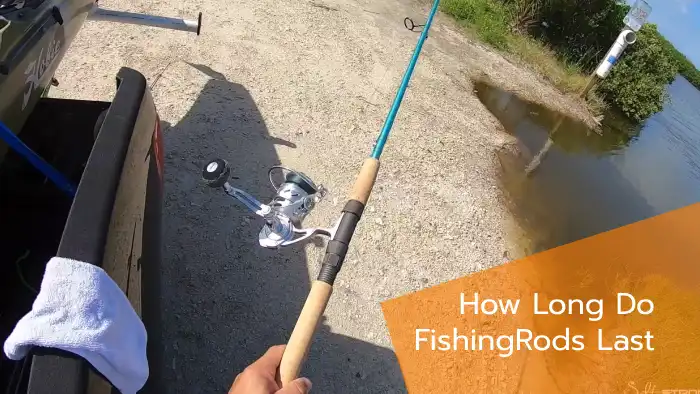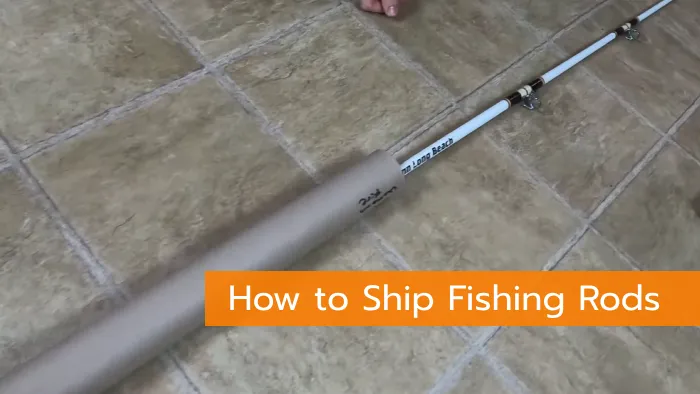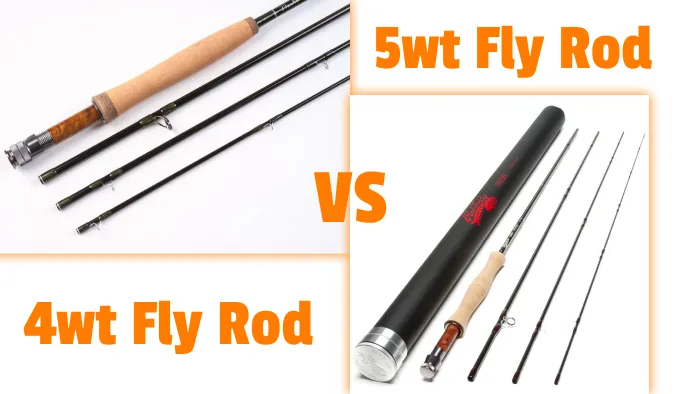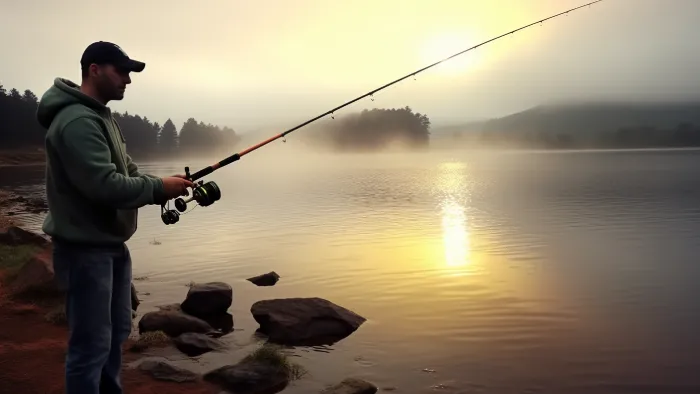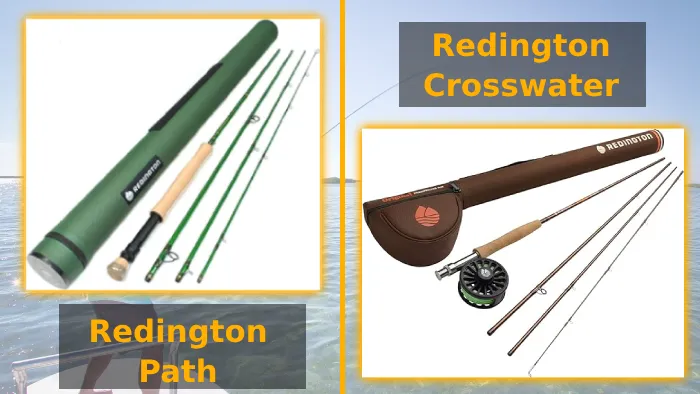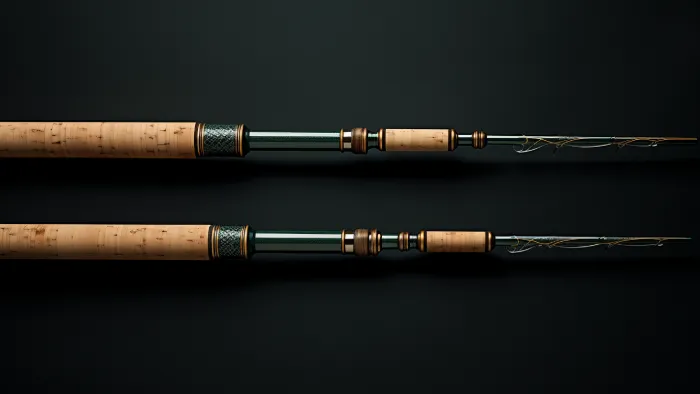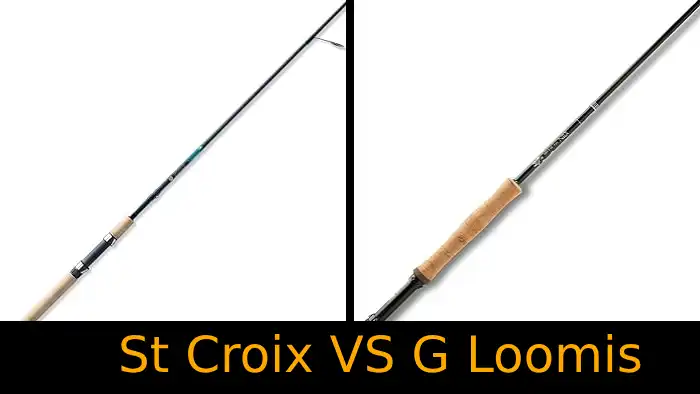How Long Do Fishing Rods Last: 6 Facts to Extend Them’s Life
Have you ever wondered how long your trusty fishing rod will last? Like any tool, fishing rods have a lifespan that various factors can influence.
The fishing rod can last over 20 years if properly cared for and handled. Also, with the right maintenance, some rods have been known to last more than 50 years. And you must admit, it’s worth considering when you think of the faded colors paired with the serene, sun-kissed backdrop.
Here, we’ll explore six interesting facts about the durability and longevity of your favorite fishing equipment. We’ll also provide tips on how to extend its life even further. So read on and discover the secret to a longer-lasting fishing rod.
The Factors Impacting How Long Do Fishing Rods Last

There are several key factors to consider in terms of determining how long fishing rods last. Most notably, the material and construction of the rod will determine its longevity. Here are some key components to look out for:
- Material
- Frequency of use
- Load and stress
- Environmental factors
- Cleaning and maintenance
- Rod storage
Let’s dive into each factor to better understand how they contribute to the life expectancy of fishing rods.
No 01. Material
To determine how long your fishing rod will last, consider the material it’s made from and its inherent durability. Different materials have varying degrees of longevity.
- Carbon fiber and graphite rods are known for their strength and resistance to deterioration, making them last longer compared to other materials. These rods are made from fibers bonded together using resin, which also affects their lifespan.
- Fiberglass rods are another durable option, although they can become brittle over time.
- Wooden rods, such as those made from bamboo or greenheart wood, can last long with proper treatment and protective coatings.
No 02. Frequency of Use
If you use your fishing rod frequently, you’ll notice more wear and tear on it over time. Repeated casting, bending, and exposure to environmental elements can gradually weaken the rod, affecting its overall performance and lifespan.
The more you use your rod, the more stress it undergoes, which can lead to the development of microcracks or even complete failure of the rod. This is why it’s essential to properly maintain and care for your fishing rod, especially if you use it frequently.
No 03. Load and Stress
You need to be mindful of the load and stress your fishing rod endures, as exceeding its intended capacity can lead to premature wear and potential damage.
Fishing rods are designed to handle specific weights and actions. Going beyond these limits can have negative consequences. When you hook a large or powerful fish, the rod will experience significant strain. It is crucial to consider the weight of the fish, the type of fishing line, and the rod’s recommended weight range.
Excessive pressure on the rod can cause it to bend or even break, compromising its structural integrity. The constant stress can also weaken the rod’s material and resin, leading to accelerated wear and reduced lifespan.
To ensure the longevity of your fishing rod, it is essential to use it within its intended capacity and take care not to overload it.
No 04. Environmental Factors
When exposed to harsh environmental conditions, such as saltwater and UV rays, fishing rod lifespan can be significantly reduced.
Saltwater is corrosive and can eat away at the rod material, weakening its structural integrity. The constant exposure to saltwater can cause the rod to become brittle and more prone to breakage.
UV rays can also have a detrimental effect on fishing rods. The resin used to bond the rod’s materials can degrade faster under UV exposure, leading to a reduced lifespan. Additionally, extreme heat can cause the resin to soften, making the rod more susceptible to damage.
You should take proper care of your fishing rod and protect it from these environmental factors to ensure its longevity.
No 05. Cleaning and Maintenance
Properly cleaning your fishing rod regularly is crucial in preserving its longevity. Dirt, salt, and debris can accumulate on the surface of the rod, leading to deterioration and potential damage. To prevent this, clean off any dirt or salt after each use.
You can gently wipe down the rod with a soft cloth or sponge with mild soap and water. Additionally, storing the rod in a protective case or rod holder when not in use will prevent physical damage, such as accidental impact or bending, that can significantly affect its lifespan.
No 06. Rod Storage
Storing your fishing rod properly is essential to its longevity and condition. By keeping it in a dry, cool, and protected environment, such as a rod holder or padded rod case, you can prevent physical damage and reduce exposure to environmental factors.
Moisture and extreme temperatures can weaken the materials and cause them to degrade more quickly, so you should provide a safe haven for your rod. A rod holder keeps the rod upright and secure, preventing it from getting knocked around or bent in awkward positions.
On the other hand, a padded rod case adds an extra layer of protection, cushioning the rod and preventing any scratches or dents. By storing your fishing rod properly, you can extend its lifespan and ensure that it remains in good condition for many fishing trips to come.
Are old fishing rods still good?
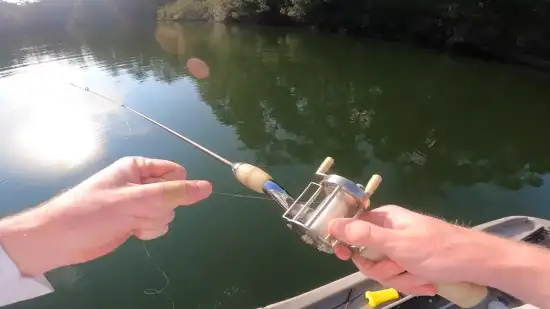
If you’ve got an old fishing rod still in good shape, there’s no need to replace it. Fishing rods generally have a long lifespan and can last for many years if they are well taken care of.
Unlike other equipment, such as reels or lines, rods don’t typically wear out with age. As long as the rod hasn’t been heavily used or damaged, it should still perform just as well as a new one.
However, inspecting your old rod for any signs of wear or damage is essential. Check the guides for cracks, ensure the handle is secure, and look for signs of weakness or breakage. If everything appears in good condition, there’s no reason not to continue using your trusty old rod.
Do graphite fishing rods wear out?
If you’re wondering whether graphite fishing rods wear out, the answer is yes, they do. The epoxy-to-graphite bonds in these rods weaken or break down over time with heavy use.
This process occurs gradually over many years of fishing. Over time, you may notice that your rod feels softer, and it may require a lighter weight line for optimal performance. This is because weakening the bonds affects the rod’s overall strength and stiffness.
However, it’s important to note that the lifespan of a graphite fishing rod can vary depending on factors such as the quality of the rod, the amount of use it receives, and how well it is cared for.
With proper maintenance and regular inspections, you can prolong the life of your graphite fishing rod and ensure it remains in good working condition for years to come.
Is aluminum or graphite fishing rod better?
The better choice between aluminum and graphite fishing rods is magnesium since it combines the best features of the other materials.
Aluminum frames are known for their strength and durability, ideal for handling larger, more dangerous fish. However, they can be heavier and more prone to corrosion.
On the other hand, graphite rods are lighter and more resistant to corrosion, making them great for longer fishing sessions. However, they may be weaker or more durable than aluminum.
Maximizing Your Fishing Rod’s Longevity
As you can see, your fishing rod’s longevity depends on many factors. And there are measures you can take to extend its life. Regular maintenance, proper storage, and gentle handling are key.
As you understand, age does not always determine a rod’s worthiness. Old rods can still serve you well if they have been cared for. As for graphite rods, while they are durable, they have a limit to their lifespan.
The battle of aluminum versus graphite ultimately boils down to personal preference. So, dear angler, treat your rod with tenderness, for it is your trusted companion on every fishing expedition.

